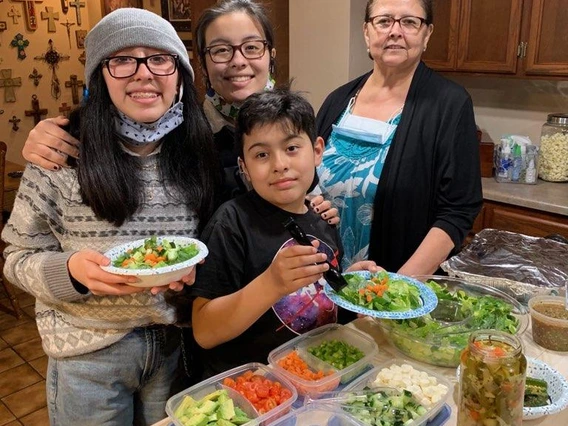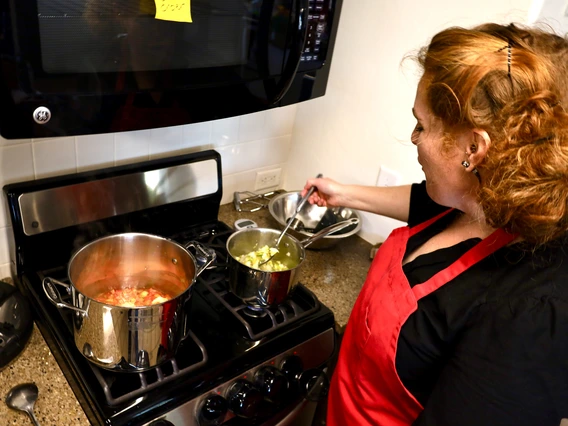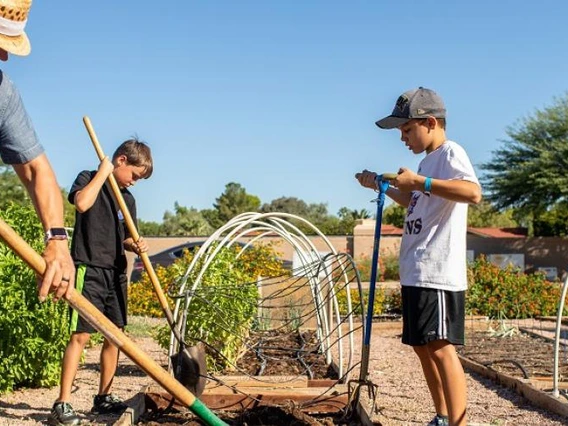AZ Health Zone (SNAP-Ed)
SNAP-Ed funding was eliminated from the federal budget by the United States Congress. As a result, the program will come to an end in Arizona and across America on September 30, 2025.
While this marks a significant transition, it does not end our shared commitment to community health. We will continue working with you to advance nutrition security, strengthen food systems, and promote active lifestyles in local communities. The success and momentum built through SNAP-Ed will continue to guide our efforts.
We understand this change raises questions about impacts on your community and Cooperative Extension more broadly. Below are responses to some of the questions you might have as the program comes to an end.
Thank you for your collaboration and commitment. We look forward to continuing this important work with you.
The Supplemental Nutrition Assistance Program Nutrition Education Program (SNAP-Ed) is funded by the U.S. Department of Agriculture. Known in Arizona as AZ Health Zone, the program is administered by the Arizona Department of Health Services in collaboration with the University of Arizona Cooperative Extension, county health departments, and community organizations, bringing nutrition education and healthy living resources to families in all 15 counties.
Yes. Funding for SNAP-Ed was eliminated from the federal budget by the United States Congress. As a result, the program will come to an end in Arizona and across America on September 30, 2025.
Many of the educational programs delivered at community sites, such as schools, senior centers, farmers' markets and food pantries, have been supported by SNAP-Ed funding. The elimination of SNAP-Ed funding means there will be fewer staff available to deliver these programs and no SNAP-Ed funds to support associated costs, such as travel, materials or site-based activities.
Yes. We continue to prioritize the health and well-being of Arizona. However, we will need to adapt to the loss of SNAP-Ed funding and are working to determine how best to move forward.
Other Cooperative Extension programs related to nutrition and gardening include the Expanded Food and Nutrition Education Program (EFNEP), Diabetes Prevention Program, and Master Gardener Program.
Follow us Facebook and Instagram for the latest events, information and resources available to you.
Our partners have always been a big part of Extension community nutrition education. Your ongoing work and support are valued and appreciated. We welcome opportunities to co-develop new programs, apply for joint funding or provide services through partnerships. Please reach out to Shea Austin Cantu , Cooperative Extension Director, Community Nutrition Education Program, to start the conversation.
No. We continue our mission to serve every community in Arizona. While SNAP-Ed funding is ending, we are committed to reimagining what our nutrition, food access, and health work can look like moving forward. We know that we will not be able to immediately support all the wonderful work and initiatives that SNAP-Ed funding allowed us to support across our state. We are actively working on solutions to address your community priorities. We welcome you to connect with your local community’s Cooperative Extension Family, Consumer and Health Sciences Agent to learn about free programming and resources available to you.
No. Our SNAP-Ed program had a strong record of success and community impact. The elimination of SNAP-Ed funding was made at the national level and affects SNAP-Ed programs nationwide. Learn more about U of A SNAP-Ed's impact in Arizona:
Partner organizations can reach out to Shea Austin Cantu. Connect with your local Cooperative Extension office to explore the programs and resources available in your community.
Media should reach out to University of Arizona Spokesperson Mitch Zak at mitchzak@arizona.edu.
Related Extension Programs

Diabetes Prevention Program
Group classes that give you the support you need to reduce your risk of type 2 diabetes.

Expanded Food and Nutrition Education Program (EFNEP)
Discover how to make healthy meals on a budget, stay active, and connect with community food resources.

Financial Literacy Program
Classes that help you reduce financial stress and take back control of your money.

Master Gardener Program
Expert knowledge on growing food and creating sustainable landscapes.

